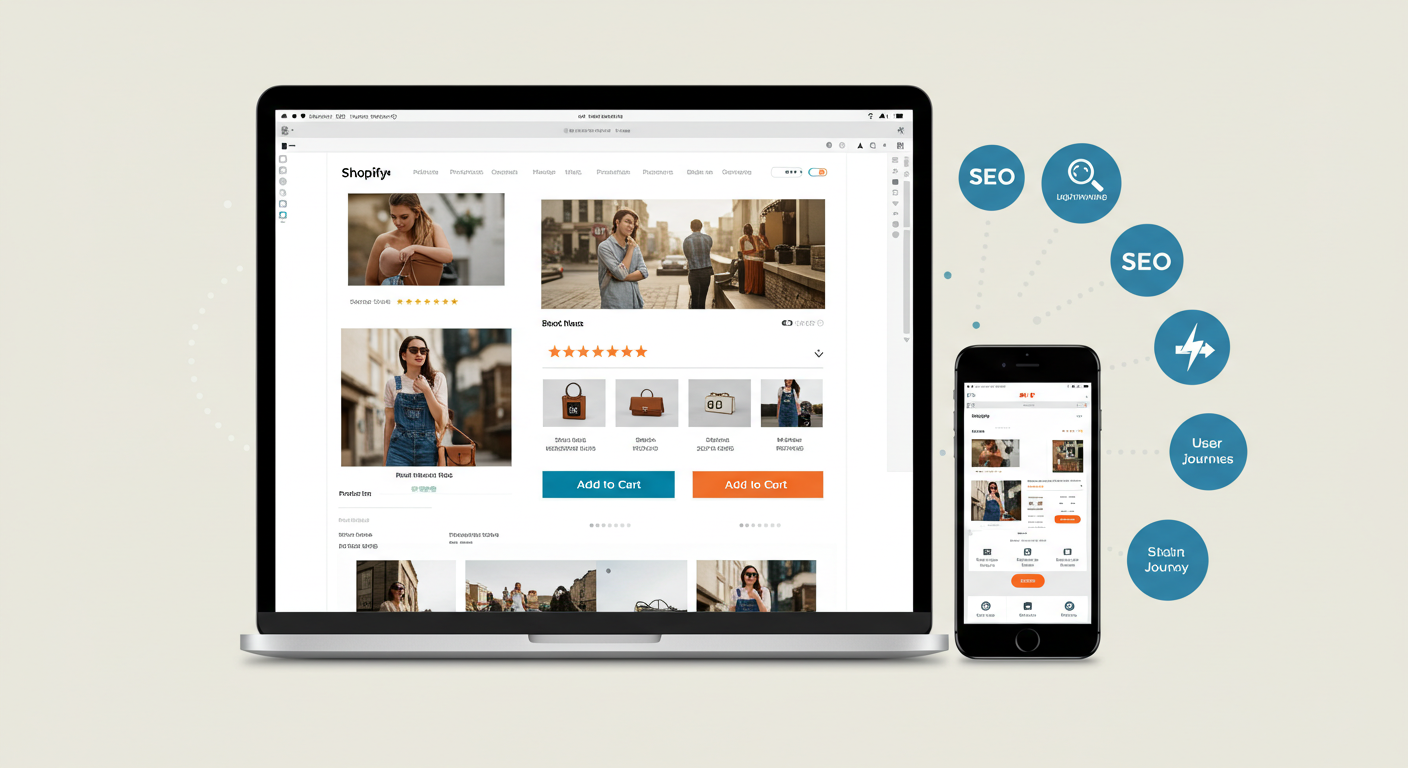Your product pages are the heartbeat of your Shopify store—they’re where browsers turn into buyers. Yet many store owners overlook how powerful a well-designed, strategically built product page can be. The difference between a bounce and a sale often comes down to a few key elements.
in this guide prepared by expert Shopify web development company we explore how to craft high-converting product pages that not only look amazing but also work hard to win over your customers.
1. Visual Impact: Selling with Imagery That Connects
In the online shopping world, visuals do all the heavy lifting. Great imagery builds trust, conveys value, and removes buyer hesitation.
What to focus on:
- Multiple Angles & Close-Ups: Go beyond a single product photo. Show every detail, every angle—and include zoom features so shoppers can get up close.
- Lifestyle Photos: Help customers imagine the product in their daily lives. Showcase real-world scenarios that inspire and connect emotionally.
- Product Videos & 360° Views: Give your shoppers the next best thing to holding the product. Videos showing the product in action and interactive views increase confidence and reduce returns.
- Visual Consistency: Keep lighting, backgrounds, and styling consistent across your catalog. It builds brand recognition and trust.
- Fast Loading Images: Optimize for speed with tools like WebP compression. Every second counts in e-commerce—don’t let large images slow down your conversions.
2. Writing That Sells: Elevate Your Descriptions
Your product description should do more than describe—it should persuade, reassure, and ignite desire.
How to make it work:
- Focus on Benefits, Not Just Features: Instead of “100% cotton,” say “soft, breathable fabric that keeps you cool all day.”
- Bite-Sized & Scannable: Use bullet points, short paragraphs, and bolded highlights. Shoppers skim—help them find key info fast.
- Inject Personality & Story: Tell your product’s story. Where did the idea come from? What makes it special? Make it relatable.
- Answer Customer Questions Proactively: Reduce buyer friction by addressing common concerns (e.g., sizing, fit, usage tips) directly on the page.
- SEO-Smart Copy: Naturally weave in relevant keywords to improve visibility in search engines without sacrificing readability.
3. Make Buying Effortless: Optimize the User Journey
Once you’ve caught their attention, don’t make them work to buy. Streamline the path from discovery to checkout.
What to fine-tune:
- Strong & Visible CTAs: Your “Add to Cart” button should stand out in color, size, and placement—especially on mobile.
- Clear Pricing & Variants: Be transparent about costs, shipping, and any options. Use intuitive menus and visual cues for variant selection.
- Show Stock Levels: Use low-stock indicators to create urgency (e.g., “Only 3 left!”). But be honest—fake scarcity hurts trust.
- Build Trust Instantly: Feature reviews, testimonials, return policies, and security badges prominently.
- Upsells & Cross-Sells: Recommend add-ons or upgraded versions to increase order value. Personalized suggestions can go a long way.
Mobile-First Design: Ensure your product page looks flawless on every device. Test buttons, carousels, and images for touch optimization.
Fast Load Times: Speed up everything. Compress files, use lightweight themes, and keep scripts lean.
4. SEO: Technical Elements That Matter
Even the best-looking product page can fall flat without strong technical foundations supporting it.
Technical must-haves:
- Clean URLs & Titles: Use descriptive, keyword-rich URLs and product page titles to help both search engines and users.
- Breadcrumb Navigation: This improves site structure and helps shoppers easily move between categories.
- Schema Markup (Rich Snippets): Structured data helps search engines display valuable info (like ratings and stock status) right in search results.
- Internal Linking Strategy: Link to related collections, blog posts, or guides to keep users engaged and enhance SEO.
Final Takeaway: Test, Tweak, Repeat
A winning product page doesn’t happen overnight. Continuously analyze performance, run A/B tests, and adapt your strategy based on real customer behavior. Trends change, and so do user expectations.
Need expert help optimizing your product pages for conversions? Whether it’s a UI/UX upgrade or a full rebuild, we’re here to bring your vision to life. 👉 Talk to our Shopify custom development specialists and let’s unlock your store’s full potential.

